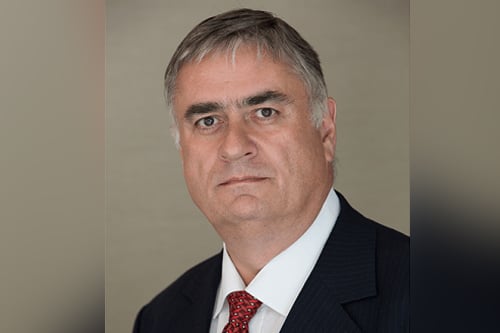

Though the sheer scale of the coronavirus pandemic has been a challenge of unprecedented proportions across the entire insurance sector, for the CEO of Manchester Underwriting Management (MUM), Charles Manchester, adjusting to life in the lockdown has been remarkably smooth. Part of this, he noted has been enabled by the almost seamless process through which the business’s staff of about 50 people have been able to start working from home, an ease which has been aided by the move MUM made to the Cloud a few years previously.
Manchester thinks that most businesses are still playing a game of wait and see on whether these new working practices will become permanent. When the new practices were first implemented it was easy to wonder why businesses spend so much money on office space, he said, but, as time has passed, the more he has noted employees are missing the opportunity to speak with each other.
“There’s a world of difference between talking on Zoom or Houseparty, and actually being physically in the same space as somebody else and having a chat and getting that body language feedback,” he said. “So, I think, what we might have is a lot more people working from home a couple of days a week. And you may need less office space but not no office space at all.”
Manchester believes that most people would not choose to work from home full-time but instead are looking for the flexibility to do so as and when is necessary for them. Many managers, himself included, have traditionally been nervous about allowing employees to work remotely but the pandemic has highlighted the capacity of staff to regulate and organise themselves and so, implementing such arrangements will be much more likely in the future.
Having worked in the insurance sector for over 35 years, Manchester is aware of what it takes to build and maintain a successful business and of the role that employees play in this success. Right from the start of the outbreak MUM has maintained that it is not going to furlough any of its employees or let any of them go, and equally the business is not looking to cut any salaries. Provided that it has the means to continue and to operate as a viable business model, there are no plans for MUM to make any of these cost-saving measures.
“The furloughing scheme by the Government is intended for businesses in catastrophic situations, and if you are not in that position then all you are really doing is enhancing your profits at the taxpayer’s expense,” he said. “For certain firms, furloughing in the short-term I understand, but some businesses are going to cut their ability to service their clients by furloughing people. It might superficially cut your costs, but it may also make it difficult to do the job properly a lot of the time.”
When MUM quotes business now, it asks prospective clients how many people they have furloughed or let go since the coronavirus outbreak and how the business will be able to continue providing the same services that they did prior to the crisis. Most of the time, these firms have thought this through and have a considered answer to this query but, occasionally, Manchester speaks to firms that have furloughed extensive amounts of their staff and are extremely ill-prepared for business as usual.
For Manchester, holding fast on the pledges that the business has made to its staff has been of great importance. There is a lot of talk about the recession that may result from this situation, he noted, but the good news for the insurance industry is that it tends to be incredibly resilient in those circumstances. For MUM, and for Manchester himself, the short-to-medium term plan is just to keep doing what they are doing, and waiting to see what ‘the new normal’ might look like.
